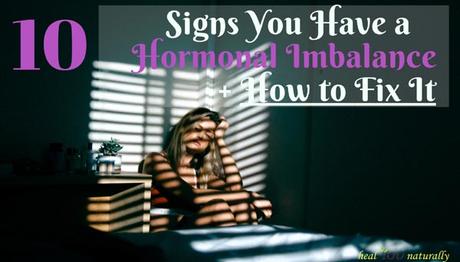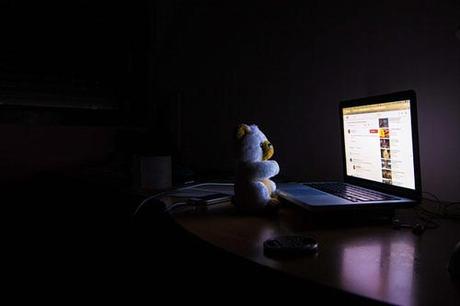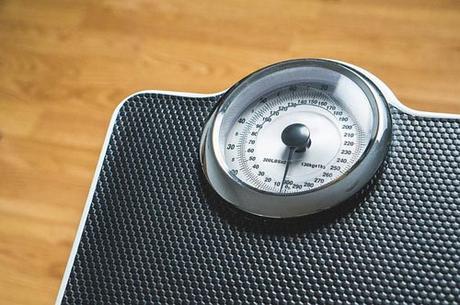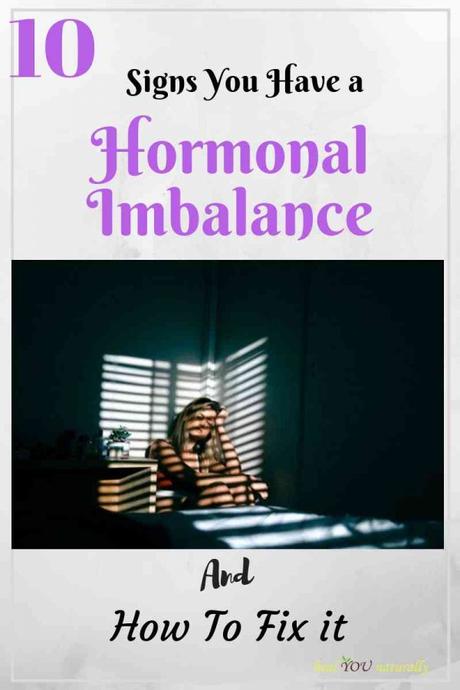
Is it a hormonal imbalance? Imagine you could get your health back and make every ailment go away...
If every symptom simply disappeared, and there was no more pain, sleepless nights, or anxiety-stress... Eventually, your doctor's visits are less or medications are removed one by one- How great would that be?
Your lab work results aren't looking great or you just feel off. You feel drained, can't sleep, overeat or have no appetite, and you can feel that your stress levels are through the roof... But right now that feels like a whole world away doesn't it? We've all been there, but it doesn't have to be this way. There are ways to gain your health back starting right now.
Below you'll learn about the possible culprit- a hormonal imbalance! Not to worry, I am going to share with you what I've learned to get your hormones back on track, and that's only a few scrolls way.
Ready? Let's do this...
Hormones are small chemical messengers that navigate throughout your body. They send messages to your cells, tissues, and organs in order to enhance your metabolism., get rid of stress, enhance your mood, build muscle, and so on. These lifestyle factors that play an important role in maintaining an optimal hormone balance such as:
- The foods you consume, how much exercise (and the kind of exercise), and other crucial factors like stress management and sleep.
- Lack of exercise, making the wrong food choices or burning yourself out will have an impact on your health in the long run. A few of us can get away with this for a very long time without suffering too greatly. For others, it can rapidly hinder health and overall performance.
- There are no shortcuts when it comes to hormone balance- lifestyle changes, food, activity, and environment- are the way to go when it comes to addressing the root cause of why hormonal imbalances take place, to begin with.
If you have been feeling off, there are signs that you can be dealing with a hormonal imbalance.
1. How Is your sleep?

If getting out of bed every morning is a struggle, then that's a clear indication your circadian hormonal output is out of balance. Particular hormones are produced in a cyclical or circadian pattern daily, and if their rhythm gets modified you'll begin to feel fatigued, and can't function properly.
For instance, let's look at the stress hormone cortisol. Cortisol should be high in the early morning; it wakes you up, gets your brain in high gear sets you up for the day. If you notice that it takes more effort than usual to get going in the morning, then your circadian cortisol high might be stuck in neutral.
How does this rhythm get out of balance?
Well, if you're always on the go and consuming a few cups of java or stimulants, it can affect your deep sleep and eventually circadian pattern. Additionally, having a hectic social life and a couple of beverages every night can likewise impede your deep sleep and circadian rhythm.
Paradoxically, if you're stressed out and busy, you usually grab more coffee throughout the day to enhance your brain and energy, and consequently more alcohol at night to loosen up and alleviate. This is the perfect combination for circadian disruption. (Research studies show that consuming more than 4 cups each day is related to increased threat of heart disease)
2. Are Your Periods Inconsistent?

3.Mood Swings (Irritability, Anxiety, Depression)

Sugar consumption has drastically increased over the past 40 years and the rates of type II diabetes are climbing side to side with them. There is a strong link between poor blood glucose control and depression. It's no surprise the World Health Organization forecasts that depression will be the leading reason for illness burden in the world.
Compelling evidence from research has been connecting the dots, suggesting that high blood glucose results in (and intensify) anxiety and depression, meanwhile depression causes (and worsens) diabetes. It's the ultimate "chicken and egg" scenario, and the down spiral appears to be affecting everybody to some extent.
4. Breast Tenderness

5. You are Fatigued, Cold and Hair is Lifeless

Like many hormones, excessive stress plays a significant role. Your cortisol stress hormone hinders the production of the thyroid hormone, stops the conversion to the "active T3" kind of hormone. It can even make your cells resistant to thyroid hormone (a sophisticated medical term that suggests your body can make thyroid hormone easily-even though your body is not utilizing it efficiently). Simply put, it resembles having a bad connection on your smartphone- sluggish service that leaves you disappointed and dissatisfied.
6. Excessive Visceral Fat (Stomach)

High tummy fat shows high levels of visceral fat- the fat that builds up around your organs. It is really pro-inflammatory and harmful for your total health. The large bulk of your cortisol receptors lie around your mid-section.
If your stubborn belly fat is high, your cortisol stress levels will be out of whack and will lead you down to weight gain, poor vitality, and bad health. Cortisol is the "yang" to insulin's "yin," accountable for raising blood sugar levels by breaking down your muscle mass. If your cortisol levels are out of balance, it can result in an insulin problem- which can lead to Diabetes.
7. You Feel Exhausted After a High Carb Meal

Does this sound familiar?
You eat a delicious lunch, return to work and by mid-afternoon, you can hardly stay awake?
Or possibly it's the high-carb breakfast (bagel, oatmeal or cereal) you ate to begin your day, and you still have a hard time to remain sharp by mid-morning?
If you discover a considerable crash after a high-carb meal, then you are likely having poor insulin function (the blood sugar hormone that transports the sugars from your breakfast or lunch from your bloodstream right into your cells).
If you're obese, out of shape, or in bad health and battle with crashes after a high-carb meal, it's maybe that your insulin hormone. Your body has to drain higher and higher quantities of insulin to deal with high carb meals (compared with a lean or fit individual). This results in a huge blood glucose and insulin high after your meal, followed by a roller coaster-like fall a few hours later on.
8. Sudden Weight Gain

9. Low Sex Drive

In gents, cortisol stress levels go up while testosterone goes down. In the ladies, stress levels lower the female hormone progesterone, which is among their main sex drive hormone.
10. Consistent Cravings (Mainly Sugar)

Do you crave sugary foods throughout the day or even at night?
Sugar cravings can be attributed to several reasons. However, there is a specific hormone that is accountable for keeping you full- leptin, your "satiety" hormone flag- when life gets hectic or east the wrong foods, or sleep very little, your leptin signal gets out of whack and cravings to take place.
If you seem like you're constantly reaching for sugary foods, fruit, or trying to find that post-dinner sweet treat, then your leptin levels are probably low. How do they get out of balance? Here's how: When insulin levels are high they block the leptin signal, resulting in more cravings (regrettably not for a healthy salad). The more simple carbs and sugars you consume (due cravings), the more insulin output and the more you reduce leptin.
Another culprit is stress. Stress interferes with leptin. It's no surprise that when anxiety, stress or you get worried the very first thing you reach for is a sweet treat (most of the time even before you "feel" stress). This huge boost of cortisol and insulin issues disrupting your leptin levels is the perfect combo for sugar cravings.
Now let's get to how you can address those imbalances not merely masking the symptoms:
What you read above are some of the signs of a hormonal imbalance. Do any of those indications sound familiar?
If you believe your "offness" might be a hormonal imbalance, there are lots of natural ways you can take to fix the issue.
How to Address Hormonal Imbalances
Re-evaluate your diet
You don't necessarily have to go on a diet, however, you can add some hormone-helping foods or herbs. For instance, if you love salad, add some spinach and toss some almonds. Both will enhance your and magnesium and calcium, which benefits bone health and hormones. If you enjoy tea, try some Kombucha. The antioxidants in tea will boost your metabolism.
If you like eggs don't skip the yolk. The joke will boost your Vitamin D levels and contrary to what we've been told, egg yokes won't "raise your bad cholesterol". This article debunks the myth on Cholesterol.
Additionally, eating clean proteins (lean and grass-fed meats, nuts, wild caught fish, and so on) instead of simple carbohydrates (pasta, white bread, cereal, rice, and so on) is an excellent way to up your minerals, enhance digestion, natural energy, helping your hormones work as efficiently as possible.
Sugar cravings
when sugar cravings hit, reach out for frozen fruit or a handful of berries, almonds or a low glycemic snack. Dark organic chocolate is a great option.
Low Libido
Low progesterone in women is usually the culprit of low libido, but creams or gels only mask the issue. The answer is- to address the root cause... stress! If you pushing yourself at the gym and training too hard (fatigued, run down, overtrained you can lose your mojo) . Sleep and relax more, drink less coffee, and fewer alcoholic drinks while spending more time relaxing at home or favorite park/beach. You can also schedule a vacation to disconnect, reset, and reinvigorate your life.
Stock up on supplements
Diet can help so much when it comes to nourishing your body to balance hormones. However, adding high-quality supplements can make a huge difference. For example, omega-3s



Ashwagandha is a natural source of energy and vitality. Being a super powerful adaptogen, Ashwagandha


Thyroid Function~
The Thyroid gland has the arduous task of keeping your metabolism running properly, brain sharp, and energy levels up. With that being said, research has linked chronic inflammation, stress and a sluggish thyroid.
The higher your stress levels- the greater the inflammation in the body, which hinders thyroid function.
If you struggle with thyroid function start off with: removing sugars from your diet immediately, limit or stop alcohol and get more sleep (this is huge) I know it sounds boring, but it's all about the basics. That way you can have an idea if you have thyroid issues or not. Finally, ask your Endo to run a full thyroid panel - TSH, reverse T3, free T3, free T3, anti-TPO antibodies. Check out this and this website for excellent lab test interpretation and in-depth info on thyroid issues - especially when you are on meds and still feel terrible or to find out of thyroid issues are potentially developing.
Introduce Meditation to Your Lifestyle.
Meditation? Boring already... nope here's the scoop:
Your brain is a regulator of chemicals in your body that dramatically impacts how you feel overall. Cortisol, the stress hormone that's very easy to skyrocket in our non-stop-repeat culture, can be seriously lowered with some meditation practice. The impact that meditation has in your body and mind is remarkable. Even 5 minutes a day will do!
Also, there are apps that you can download to your phone where you can meditate or even have some quiet time. I like The Calm app meditation to relax, focus and sleep better ( Android and Apple).
Early morning meditation for focus and a night meditation for much better sleep. An important recommendation - power down all gadgets 45 to 60 minutes before bed then settling into a meditation length of your choice will help you counteract insomnia fall under a deep, serene sleep.
Your turn- What are your go to foods or lifestyle changes to address hormonal imbalances? I'd love to hear your tools to combat hormonal imbalances. Learned something new? Share this with friends or family who may be displaying any of the symptoms.We can always help each other and answer any questions you may have.
To your best health,



